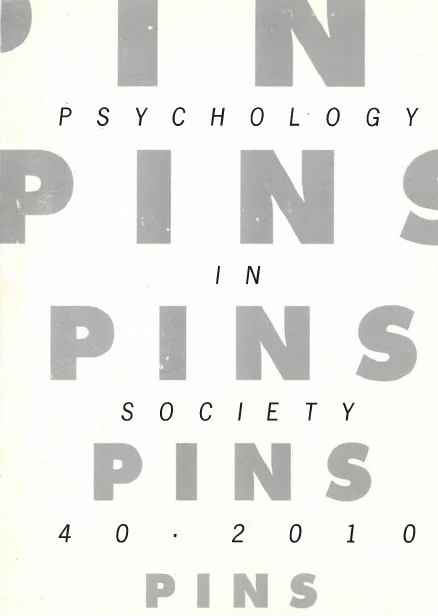THE APARTHEID ARCHIVE: MEMORY, VOICE AND NARRATIVE AS LIBERATORY PRAXIS
DOI:
https://doi.org/10.17159//2309-8708/2010/n40a2Keywords:
Apartheid Archive Project (AAP), apartheid, archive, memory, voice narrative, liberation psychology, praxis, post-apartheid South AfricaAbstract
This article explores the socio-political imperative and psychosocial value of re-engaging and expanding the apartheid archive in contemporary South Africa. It
suggests that this archive's entanglement with de facto official histories of South Africa has resulted in certain elisions about the historical content of this archive, but also compromises our ability to examine the ongoing effects of our racialised past. It argues that the archive needs to be liberated from these socio-political constraints, expanded, re-appropriated and reclaimed, if we are to more fully apprehend and comprehend the impact of this history. Utilising the Apartheid Archive Project (AAP) as an exemplar, the article highlights the value of retrieving personal memories in countering the totalising effects of official histories, argues for the relationship between such memories and the articulation of voice for those marginalised groups and subalterns that have been excluded from official histories and the archive, and suggests that the narrative is a liminal mnemonic technique that allows for the expression of these memories as fragments and traces of the past that are re-constituted in the present, but also allows for a future imaginary. While recognising that memories articulated through narratives have limitations and are but one source of archival data, the article nevertheless argues that this is a critical political and psychological act in expanding the archive and has certain relationships to a liberatory praxis. In particular, it involves ongoing reflexive critique of this archive as a form of action and practice that transcends an event or moment, and is rather an evolving and dynamic process; allows for greater inclusivity; respects diversity; facilitates historical reclamation and democratisation; intersects with decolonisation methodologies and processes; and surfaces new modalities and interdisciplinary ways of knowing and understanding. The article concludes that all of these may allow for a range of alternative analyses, subject positions and social relations to emerge that may help to extricate us from the fixity and binaried nature of blackness and whiteness that continue to plague us in post-apartheid South Africa.
Downloads
Downloads
Published
How to Cite
Issue
Section
License
This journal is an open access journal, and the authors' and journal should be properly acknowledged, when works are cited.
Authors may use the publishers version for teaching purposes, in books, theses, dissertations, conferences and conference papers.
A copy of the authors’ publishers version may also be hosted on the following websites:
- Non-commercial personal homepage or blog.
- Institutional webpage.
- Authors Institutional Repository.
The following notice should accompany such a posting on the website: “This is an electronic version of an article published in PINS, Volume XXX, number XXX, pages XXX–XXX”, DOI. Authors should also supply a hyperlink to the original paper or indicate where the original paper (http://www.journals.ac.za/index.php/pins) may be found.
Authors publishers version, affiliated with the Stellenbosch University will be automatically deposited in the University’s’ Institutional Repository SUNScholar.
Articles as a whole, may not be re-published with another journal.
The copyright of the article(s) lies with the author(s).
The copyright of the journal lies with PINS-psychology in Society.
The following license applies:
Attribution CC BY-NC-ND 4.0 - https://creativecommons.org/licenses/by-nc-nd/4.0/

